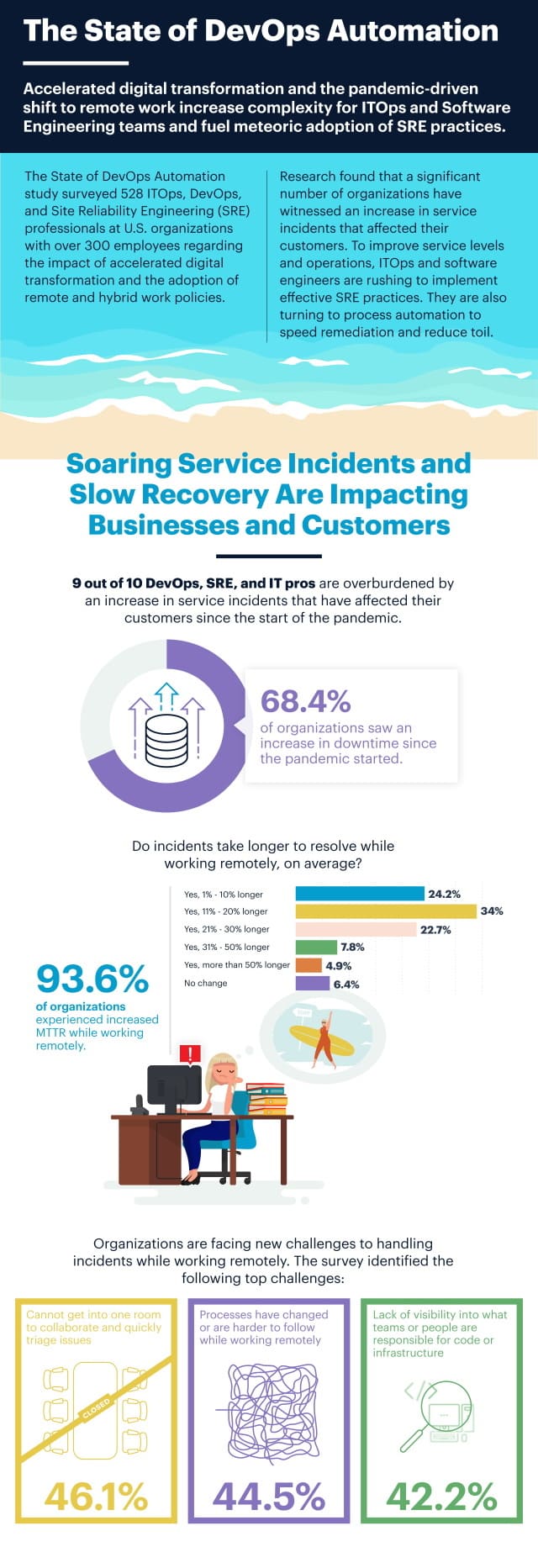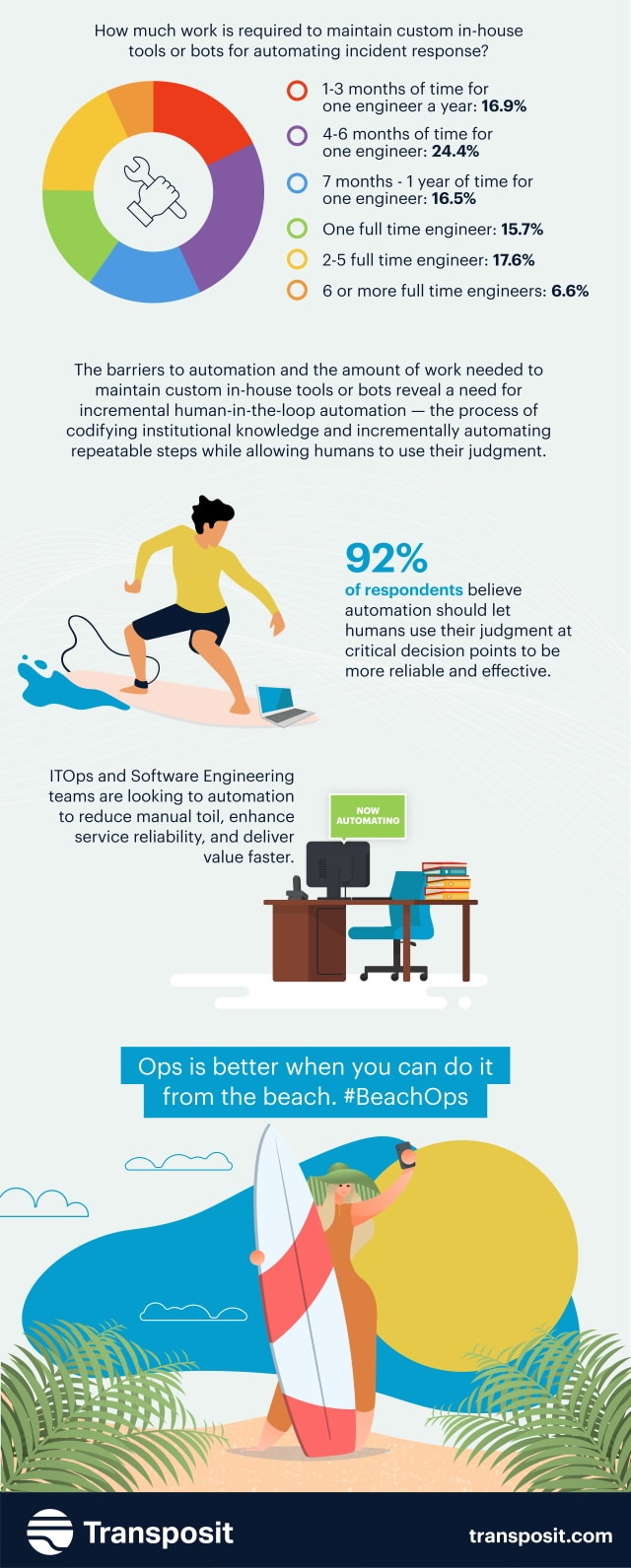More process automation needed to support digital transformation

Software engineering and IT operations teams are facing increased complexity in meeting customer and employee demands, as well as remote and hybrid work policies ushered in by COVID-19.
The key to dealing with this is increased process automation in IT operations (ITOps) according to a new report from DevOps process orchestration company Transposit.
Among the findings are that 94 percent of respondents increased focus on site reliability engineering (SRE) practices in their organization in the past 12 months, while 42 percent plan to expand their SRE efforts this year. 86 percent of organizations are planning to hire site reliability engineers in the next 12 months.
"Our study aligns with what we've been hearing from customers. Organizations have many manual DevOps processes that cause unnecessary toil. And, they are investing too many of their resources -- including talent -- on building custom in-house tools to automate an incident response process that pulls together all the parts of their software stack," says Tina Huang, CTO and founder of Transposit. "Those resources could be put to better use by investing in initiatives that drive companies forward, such as product innovation or customer service, especially during a time of economic uncertainty and, for some industries, instability."
Although the majority of organizations have incorporated remote and hybrid work policies and have increased digital transformation initiatives since the start of the pandemic, organizations have also been hampered by longer incident resolution, inefficient processes, and lack of automation.
Nine out of 10 organizations surveyed have experienced an increase in service incidents that have affected their customers since the start of the pandemic, with nearly 60 percent of respondents observing at least a 20 percent increase in service incidents or more. 93 percent say that incidents are taking longer to resolve while working remotely with over half reporting that incidents took between 11-30 percent longer to resolve than average. In addition nearly 70 percent have seen an increase in the cost of downtime since the pandemic started.
But despite enthusiasm for automation nearly half of respondents report that their engineering operations are only between 26 and 50 percent automated. The top barriers to automation are cited as; inadequate documentation of institutional knowledge and existing processes (51.9 percent), lack of clarity about what to automate (47.3 percent) and not enough sharing of knowledge (43.8 percent).
The full report is available from the Transposit site and there's an infographic summary of the findings below.



Photo Credit: Wright Studio/Shutterstock
